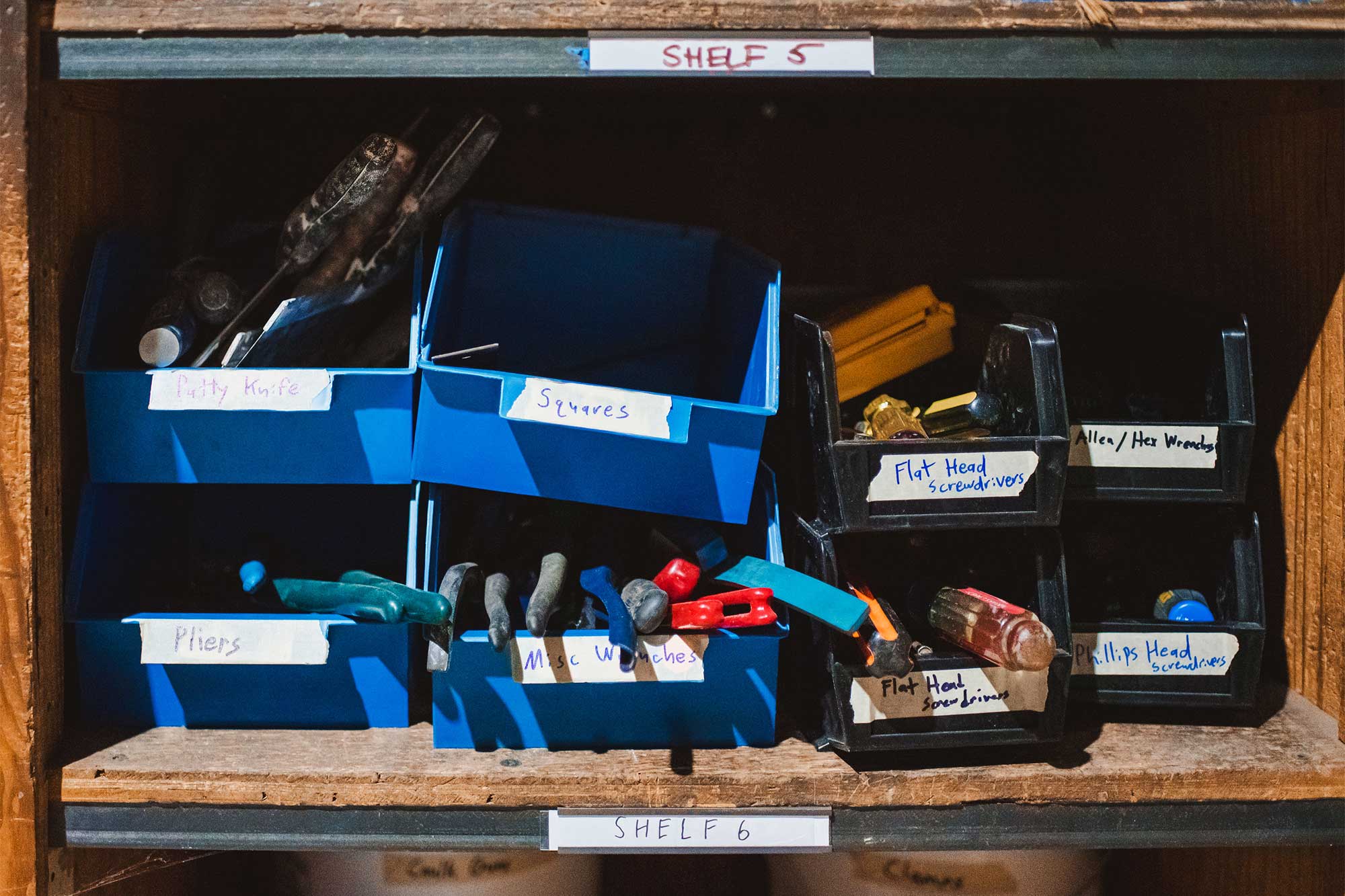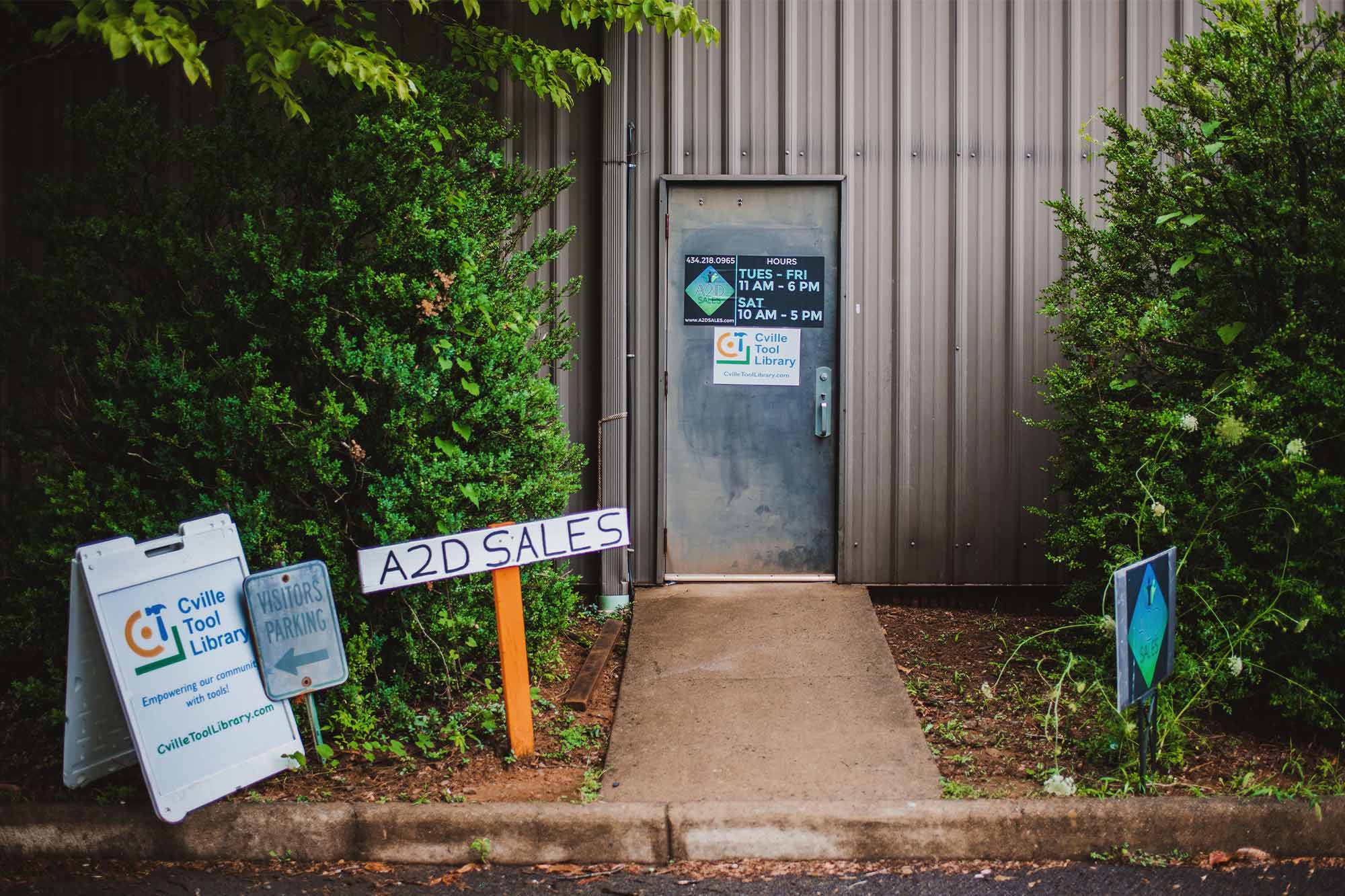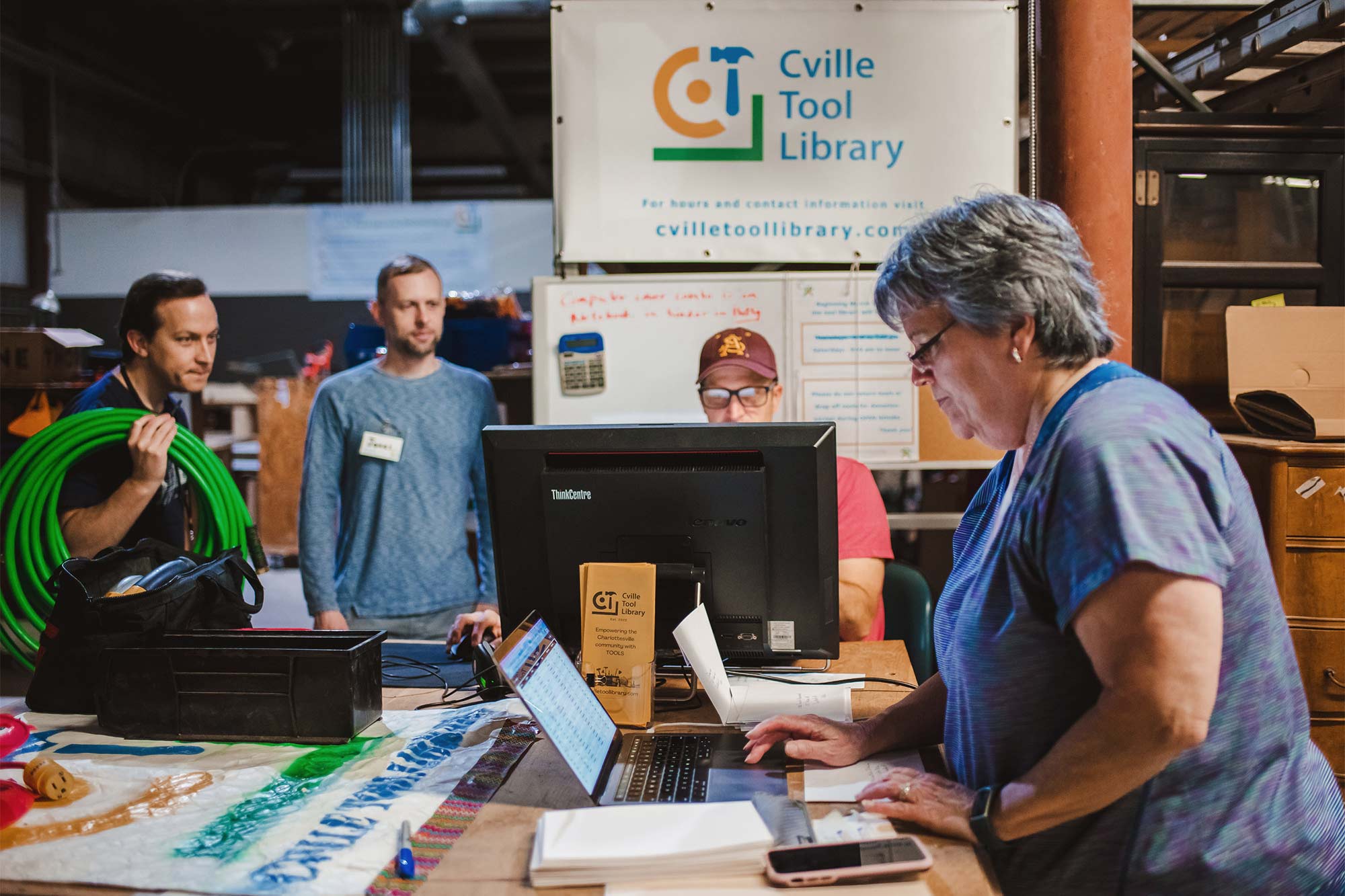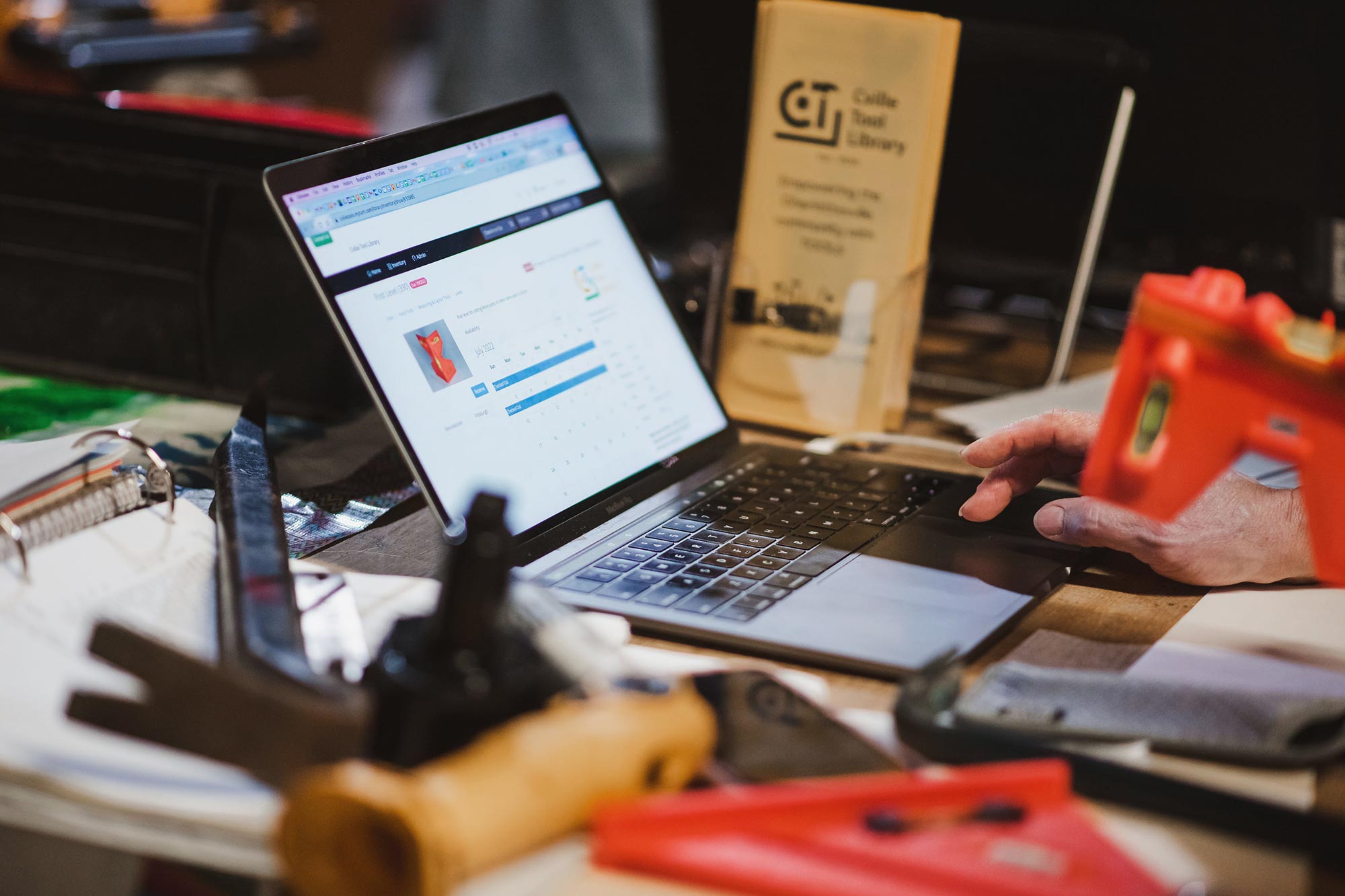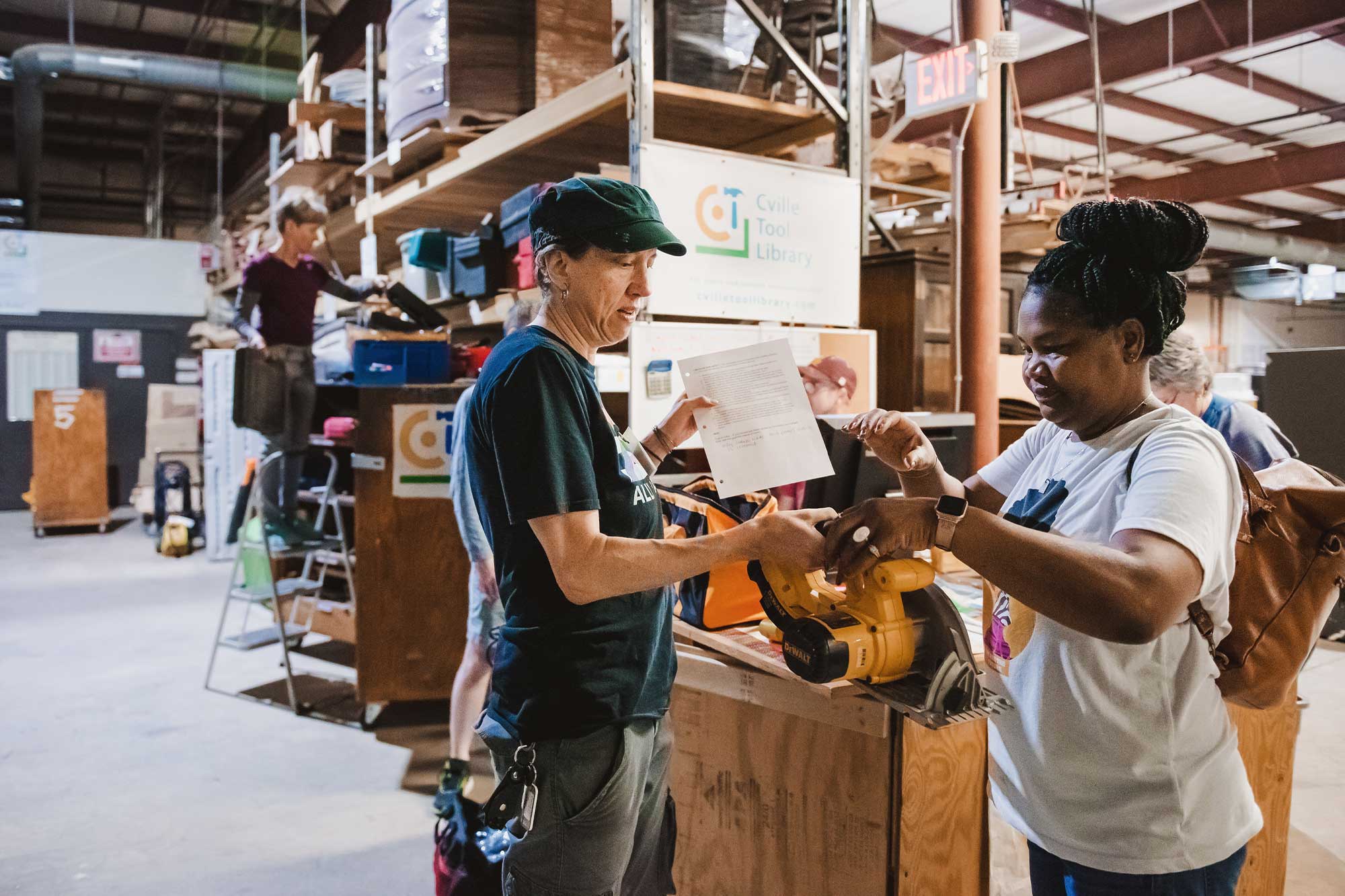Have you ever started a project, only to be stymied by a lack of the proper tools? The Charlottesville Tool Library might be your solution.
“Tool libraries are part of a larger network, part of the do-it-yourself movement and shared resources and the right-to-repair movement,” said Melissa Goldman, fabrication facilities manager at the University of Virginia’s School of Architecture and one of the founders of the library. “It helps empower neighbors to start a group within your community to share tools. It provides access and training … to support homeowners and entrepreneurs and blossoming makers of all sorts.”
The tool library opened this spring and currently has about 100 members and an inventory of more than 500 tools.
“I think there will be a lot of people who are homeowners who are learning how to maintain their home or make small improvements,” Goldman said. “They would like to do it themselves, but they don’t necessarily have the tools. If it is something that takes a little more planning, they can come, check out what they need and be part of that community.”
The idea of a tool library in Charlottesville began in the pandemic.
“It started with Habitat for Humanity and the Habitat Homeowners Council saying there needed to be a place that can host a bunch of tools,” Goldman said, “because their homeowners are not in a financial situation to be able to own all of the tools they might need to keep their homes the way they want them.”
